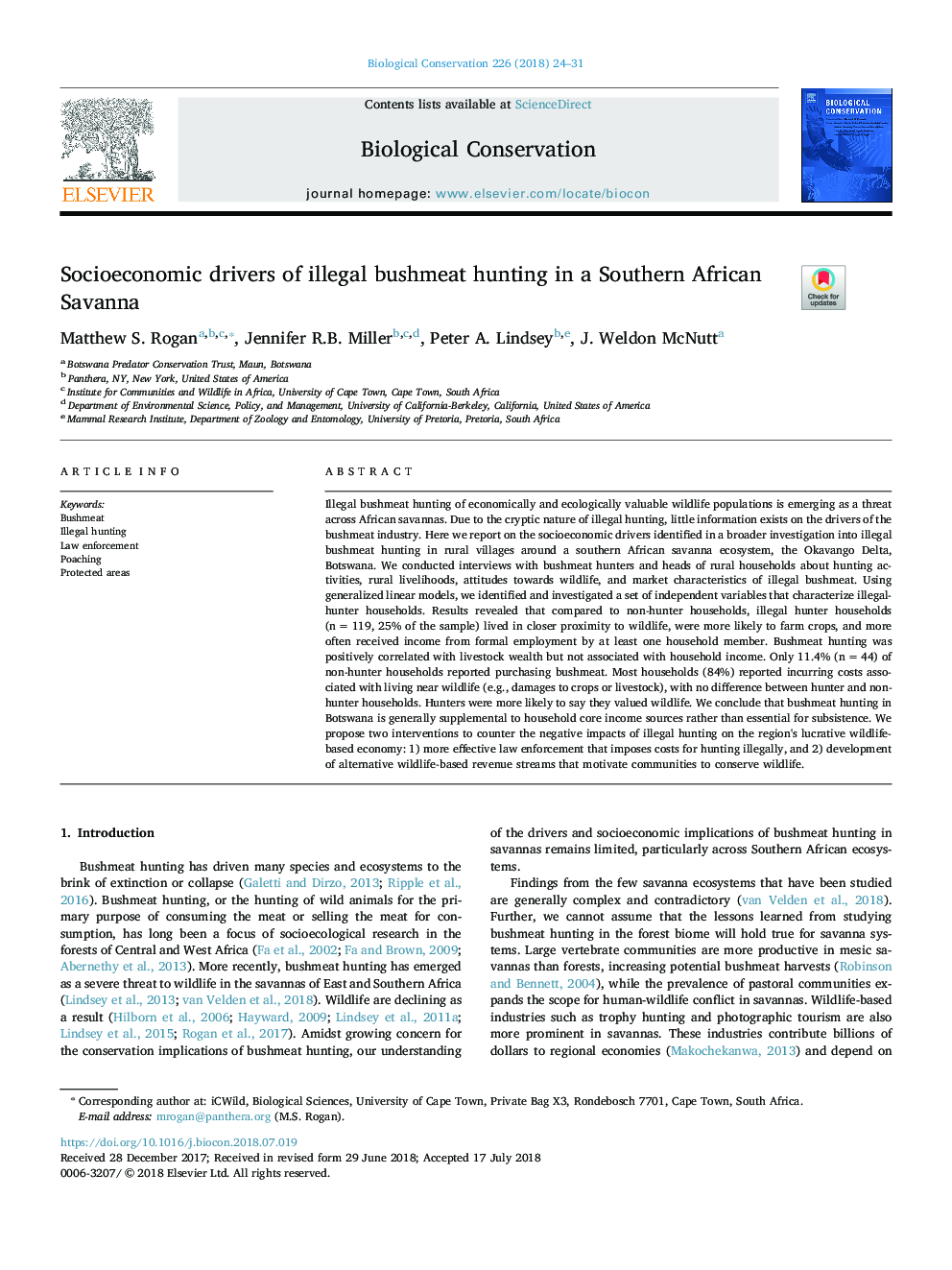| کد مقاله | کد نشریه | سال انتشار | مقاله انگلیسی | نسخه تمام متن |
|---|---|---|---|---|
| 8847082 | 1617879 | 2018 | 8 صفحه PDF | دانلود رایگان |
عنوان انگلیسی مقاله ISI
Socioeconomic drivers of illegal bushmeat hunting in a Southern African Savanna
ترجمه فارسی عنوان
رانندگان اجتماعی و اقتصادی شکار غیر قانونی شکارچی ماهی در ساوانا آفریقای جنوبی
دانلود مقاله + سفارش ترجمه
دانلود مقاله ISI انگلیسی
رایگان برای ایرانیان
کلمات کلیدی
موضوعات مرتبط
علوم زیستی و بیوفناوری
علوم کشاورزی و بیولوژیک
بوم شناسی، تکامل، رفتار و سامانه شناسی
چکیده انگلیسی
Illegal bushmeat hunting of economically and ecologically valuable wildlife populations is emerging as a threat across African savannas. Due to the cryptic nature of illegal hunting, little information exists on the drivers of the bushmeat industry. Here we report on the socioeconomic drivers identified in a broader investigation into illegal bushmeat hunting in rural villages around a southern African savanna ecosystem, the Okavango Delta, Botswana. We conducted interviews with bushmeat hunters and heads of rural households about hunting activities, rural livelihoods, attitudes towards wildlife, and market characteristics of illegal bushmeat. Using generalized linear models, we identified and investigated a set of independent variables that characterize illegal-hunter households. Results revealed that compared to non-hunter households, illegal hunter households (nâ¯=â¯119, 25% of the sample) lived in closer proximity to wildlife, were more likely to farm crops, and more often received income from formal employment by at least one household member. Bushmeat hunting was positively correlated with livestock wealth but not associated with household income. Only 11.4% (nâ¯=â¯44) of non-hunter households reported purchasing bushmeat. Most households (84%) reported incurring costs associated with living near wildlife (e.g., damages to crops or livestock), with no difference between hunter and non-hunter households. Hunters were more likely to say they valued wildlife. We conclude that bushmeat hunting in Botswana is generally supplemental to household core income sources rather than essential for subsistence. We propose two interventions to counter the negative impacts of illegal hunting on the region's lucrative wildlife-based economy: 1) more effective law enforcement that imposes costs for hunting illegally, and 2) development of alternative wildlife-based revenue streams that motivate communities to conserve wildlife.
ناشر
Database: Elsevier - ScienceDirect (ساینس دایرکت)
Journal: Biological Conservation - Volume 226, October 2018, Pages 24-31
Journal: Biological Conservation - Volume 226, October 2018, Pages 24-31
نویسندگان
Matthew S. Rogan, Jennifer R.B. Miller, Peter A. Lindsey, J. Weldon McNutt,
